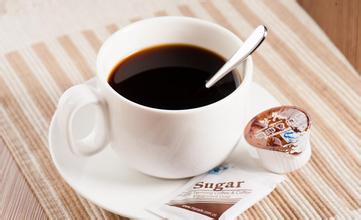Introduction of Ruoxia Coffee Grinding scale Variety taste Manor treatment method
Floral, tropical fruit, intense sweetness; these are the feelings that rose summer has always brought us. Properly baked, they make you feel like sipping the fragrance of a bouquet of flowers. In case you haven't heard the story, Rose Summer is an ancient native from Ethiopia that was brought into Costa Rica as a coffee sample and distributed to several small farms for small-scale trials.
Not much attention was paid to the rose until the Esmeralda estate in Panama separated it from the rest and won the national coffee championship.
She's so extraordinary, fruity and floral, it's like a Yega Shefi from Ethiopia, Africa, halfway around the world. Of course, that's old news now. A few small farms are getting summer roses, and eager ones want to grow their own.
However, the results vary, depending on weather, soil and altitude, and the taste of this "star" variety does not seem to be the same in different geographical locations. But in the Actanango region, we see typical rosewood characteristics: slender bean shapes, changes in baking, and elegant, ripened flavors in the cup.
In 1931, it was exported from Geisha Mountain in southwest Ethiopia to Kenya, Tanzania and Costa Rica. In the 1960s, it was transplanted to Panama. After nearly half a century, it was amazing. It defeated the ever-winning varieties such as Boben, Kadulla, Kaduai and Tibika, and won the first prize in the 2005, 2006 and 2007 Panama National Treasure Bean Cup. In 2007, the International Famous Bean Cup sponsored by the American Fine Coffee Association (SCAA) won the championship again, and the bidding price was sold at 130 US dollars per pound, setting a record for the highest price in the history of competition beans. It is reported that the later Panama National Treasure Bean Competition will be divided into two groups: Rose Summer and Non-Rose Summer.

Important Notice :
前街咖啡 FrontStreet Coffee has moved to new addredd:
FrontStreet Coffee Address: 315,Donghua East Road,GuangZhou
Tel:020 38364473
- Prev

Malt Sweet Bolivian Coffee Grinding scale Variety Flavor description Taste Manor introduction
Traditional Typica species are mostly grown on high mountains with rich volcanic soil more than 2000 meters above sea level. The source of water for coffee treatment also comes from melted snow water in the mountains, which is completely pollution-free. Because of its high altitude and low temperature all the year round, the Typica species here is not as big as that of neighboring countries, but it has more diverse fragrances and fuller sweetness. Clean malt sweet, orange, red jujube, and lemon peel
- Next

Introduction to the varieties of Ethiopian Coffee Bean Grinding scale treatment
Like the locals, I, like the locals, must have a cup of coffee before I feel that the day has officially begun. In Ethiopia, this number can rise from one to three or more. Anyway, I don't have to eat, but I absolutely have to drink coffee. Doni told me that Ethiopians drink coffee at least three times a day, with different names, Abol, Tona and Bereka, to visit friends.
Related
- Detailed explanation of Jadeite planting Land in Panamanian Jadeite Manor introduction to the grading system of Jadeite competitive bidding, Red bid, Green bid and Rose Summer
- Story of Coffee planting in Brenka region of Costa Rica Stonehenge Manor anaerobic heavy honey treatment of flavor mouth
- What's on the barrel of Blue Mountain Coffee beans?
- Can American coffee also pull flowers? How to use hot American style to pull out a good-looking pattern?
- Can you make a cold extract with coffee beans? What is the right proportion for cold-extracted coffee formula?
- Indonesian PWN Gold Mandrine Coffee Origin Features Flavor How to Chong? Mandolin coffee is American.
- A brief introduction to the flavor characteristics of Brazilian yellow bourbon coffee beans
- What is the effect of different water quality on the flavor of cold-extracted coffee? What kind of water is best for brewing coffee?
- Why do you think of Rose Summer whenever you mention Panamanian coffee?
- Introduction to the characteristics of authentic blue mountain coffee bean producing areas? What is the CIB Coffee Authority in Jamaica?

